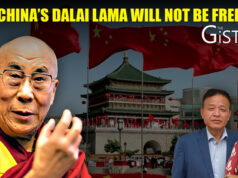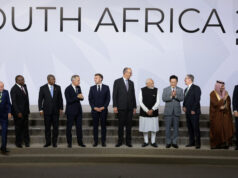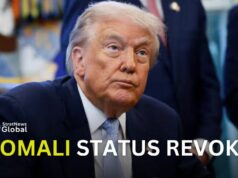
Terrorism and terrorist related deaths are increasing in Africa. The latest report of the Global Terrorism Index lists Africa’s Sahel region as the “epicentre of global terrorism”, accounting for “over half of all terrorism related deaths.”
Terrorism In Sahel
The report said this semi-arid region of more than three million square kilometres south of the Sahara Desert, recorded 3,885 people killed out of a worldwide total of 7,555. The striking fact here is globally, terrorism-related deaths have declined but in the Sahel these have gone up nearly tenfold.
The Sahel covers 10 countries (Burkina Faso, Niger, Mali, Cameroon, Guinea, The Gambia, Senegal, Chad, Nigeria and Mauritania) but unlike other parts of the world that have experienced “lone wolf” acts of terror, here it has groups affiliated to the Islamic State, and another linked to Al Qaeda, called Jama Nusrat al Islam wal Muslimeen (JNIM).
For India, these carry significant implications, especially in the areas of regional security, counter-terrorism, and geopolitical alignment.
Professor Ajay Dubey, at the Centre for African Studies, Jawaharlal Nehru University, Delhi, told StratNewsGlobal that the public in these countries have largely supported the military regimes.
“The reason being that the previous regime, whether elected under a democratic process or civilian, had failed to deliver basic security for the West African people,” he says.
According to him, the inability of Western powers to contain the growing jihadist threat has been a key factor in the breakdown of civilian rule and the formation of new regional alliances.
“The biggest catalyst and instigator for this change… is the jihadi onslaught on the region,” Prof. Dubey explains.
Armed groups have captured border areas and destabilized governments, while Western military support has proven ineffective. This failure has contributed to a growing perception that Western involvement has prioritized resource extraction over regional stability, leading to a push for new alignments and self-determination.
India, Prof. Dubey stressed, has consistently maintained a policy of non-intervention in regime changes abroad.
“India has always taken the position that changes of political regimes in the region are internal matters. It does not enforce or export democracy,” he says.
While India values democracy, it does not seek to impose it—a stance that stands in contrast with Western powers.
At the same time, Dubey urges India to remain vigilant about the broader security implications.
“India should set up a watch and warning unit in the region… to monitor how jihadist networks operating there may have connections with groups in India,” he suggests. With known presences of organizations like Al-Qaeda and ISI in regions like Kashmir and Kerala, he notes that the West African theatre could pose indirect threats to Indian security.
Background
Recent protests across Africa have shown strong popular support for the leadership in Burkina Faso under Captain Ibrahim Traoré, as well as for the newly formed Alliance of Sahel States (AES)—a coalition of Burkina Faso, Mali, and Niger.
These nations have expelled French troops, rejected the CFA Franc, and are increasingly turning to countries like Russia and China for partnerships.
India’s engagement, Prof. Dubey advises, should remain “measured,” keeping in mind both the evolving political landscape and India’s long-term strategic interests.
While India’s direct economic stake in the region remains limited, the potential spread of jihadist influence and broader security dynamics make it essential for India to track these developments closely.




